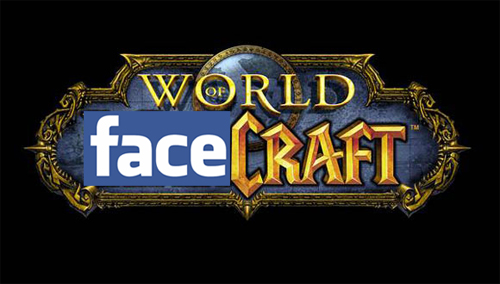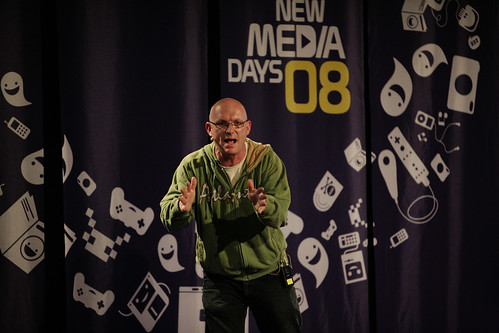Triggered by Jon Lund’s latest blogpost, “Facebook killed the blog” – and also discussions at the New Media Days brainstorm the other day – I came to wonder: Is Facebook really suffocating all other web services? Have the majority of internet users been lulled into satisfaction by The Facebook Choir’s rendition of “Nobody does it better”?
Jon Lund and his Google search results point to the fact that some people now find they spend less time blogging, because they’re busy with Facebook. Others, for instance Morten Remmer, find that the microblogging trend (Twitter, Jaiku etc.) also has little to offer in view of Facebook’s status wall. So is Facebook the only personal, output channel we need? And how long before Mr. Zuckerberg launches World of Facecraft to quell the advances of online gaming too?

Few would disagree that the blog as a communication platform has lost its overall news value during the past 2-3 years, but measuring up a coffin seems a bit rash. When weblogs started to gain popularity in the late 90s it was because the platform offered an easy-to-use interface for sharing opinions. Since then multiple formats of personal, online expression have emerged to compete for the user’s attention and some of these certainly fit a broader portion of web users better than the blog ever did.
Facebook is a unique example of this change; a university experiment becoming an indispensable, worldwide hub of services bridging microblogging (Status wall), webmail (Inbox), calendar (Events), pictures (Photos), commercial websites (Pages), casual gaming (Applications) not to mention personal details on every person, you want to stay in touch with (Friends.)
Facebook’s nose for market direction + guts to revitalize their product in spite of customer satisfaction is deserving of respect. Most people now get their need for online expression satisfied right within one URL. Facebook is the mall of social web apps. Who would ask for anything more?
Eventually most of us will. Parking our online attention with Facebook is easy and comforting in a fragmented media landscape, but special interest content and services we’ll look for outside; in the rough. I love the status feed, but don’t count on it for the well-argued opinions or detailed research that I find in some blog posts. I often flick through photos of my Facebook friends, but go to Flickr or Google when searching for specific motifs. Facebook is a convenient constellation of services, but every one is done better elsewhere.
Take Twitter. (In my view Twitter (“What are you doing?”) should switch catchphrase with FB (“What’s on your mind?”) and make both fit better.) If I want nice-to-know information about my friends’ whereabouts or concerns, I consult Facebook. If I want to stay on top of news from around the world, I go to Twitter – or actually Twitter runs on my desktop all the time; a constant flow of (mostly) relevant news that I wouldn’t want to be without.
The nature of your Twitter flow is also fully customizable. It simply depends on whom you choose to follow. I only have a handful of duplicates from my Facebook friends list on Twitter and consequently get two very different feeds: One work related (Twitter) and one personal (FB). I think Twitter does microblogging better than Facebook, but at the end of the day I would like to have them both, as they fill different needs.
All in all it’s great that Facebook is taking some steam off the blogosphere and the twittersphere; fragmentation in this respect is not a bad thing and will hopefully lead to blogs regaining some lost authority, while Twitter continues to provide for a different kind of public sphere communication – as opposed to personal.
This is not arguing for an elitist quality-purification of blogs, tweets and other non-FB services, but simply saying that perhaps the Facebook Monster isn’t so much killing off other services as helping them crystallize their strengths – like Myspace is now synonymous with music.
Is this naïve and overly simplistic? Or perhaps just stating the obvious?
Related:
New Media Blog: Lifestreaming – Connecting the social dots
The Bivings Report: Facebook’s Challenges in Going Global
PR 2.0: (ebook) The Art and Science of Blogger Relations
Promo Magazine: Casual Games, Serious Marketing














